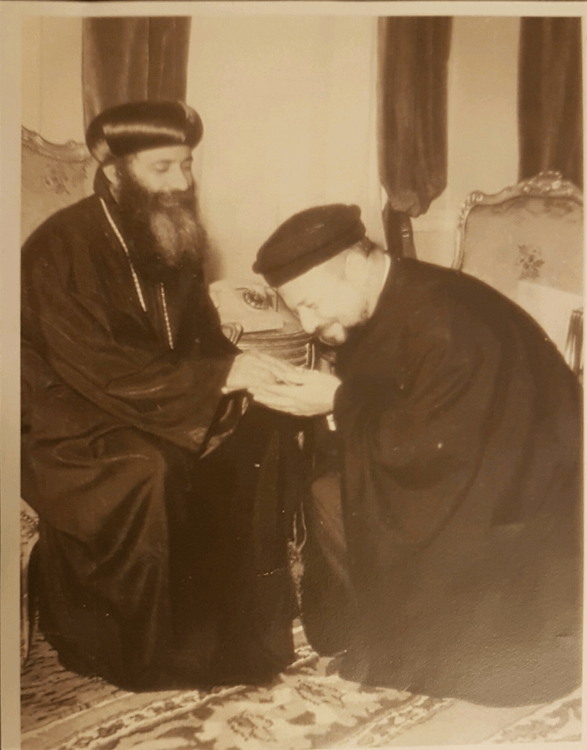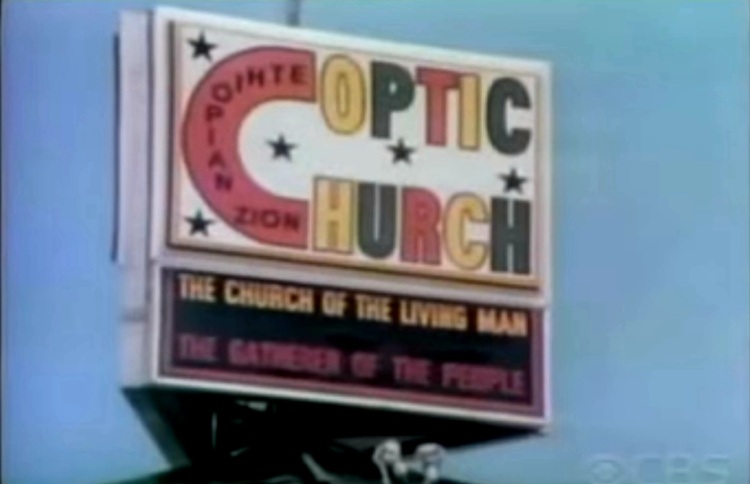
The Akladios Brothers: Finding the Copts in Cosmopolitan Alexandria
How did Coptic Christians help shape Alexandria and establish community while navigating their relations with others? By tracing the stories of four generations of my family, I follow the complex, intricate trajectories of ordinary Copts. In time, restrictions on church-building and limits on economic mobility for a national minority affected a pattern of emigration illustrated by my family’s dispersion across Egypt’s many diasporas.

The Contested Politics of Coptic Diasporic Activism
Ideological divides and a lack of collaboration have characterized diasporic Coptic activism over the last five decades. Fragmentation among Coptic organizations with competing narratives and strategies has hindered alliance-building, grassroots mobilization, fundraising, and policy impact. Despite these challenges, the so-called Aqbāt al-mahjar remain attuned to and invested in Egyptian concerns, offering a compelling counter-narrative to dominant representations inside Egypt that paint them as traitors to the national cause.

Stop victim-blaming Egypt’s Copts
Following an attack on two buses and a microbus in Egypt’s Minya governorate, killing at least seven Coptic Christians and injuring 16 others, both domestic and international media have deployed subtle and not-so-subtle forms of victim-blaming in their coverage. While denouncing hateful acts in the US and the vitriol of their own president, US media continues to perpetuate false Egyptian state rhetoric and a centuries-long orientalist vision of the Middle East and its peoples.

Debating Christmas Day: Copts, Calendars, and the Immigrants’ Church
At the heart of such debates, past and present, is the tremendous influence of Pope Shenouda and the many meanings of belonging to the Coptic Orthodox Church of Egypt. In order to chart this history and offer insights on its contemporary significance, we begin with the challenges faced by early Copts in North America and then outline the changing nature of Coptic diasporic communities as a consequence of rising immigration from Upper Egypt, following the 2011 revolution.

Holy Smoke: Egypt’s Copts Discover the Ethiopian Zion Coptic Church
While we may think that diaspora activism often revolves around homeland politics, sometimes, it is also determined to disaffiliate from the ganja. As a new immigrant group, Copts worked to stake a claim to their distinct heritage as a model minority in North America.

Research under Covid Lockdowns, or How I learned to Stop Worrying and Love Online Resources
Just as we should heed the call to resist going back to the old ‘normal’ of our pre-pandemic lives, so too should we advocate for a more equitable and social-justice oriented approach to the archives. We should examine the positionalities, assumptions, and desires undergirding our research as we begin to slowly re-enter the reading rooms of repositories across the globe. Our location and passports enable us to claim a ‘post-pandemic’ reality, when much of the Global South continues to bear the burdens of inequitable access to resources. It is in solidarity, not extraction, that we should embark on our work now and into the future.

How Santa-tised Western Christmas is displacing traditional Coptic Orthodox celebrations in Egypt
In recent years, Western Christmas celebrations have eclipsed the Orthodox indigenous Christmas celebrations from the public sphere because of the escalating Westernisation and hyper-capitalisation of Egyptian society. Evident throughout major cities across Egypt, this process is far more accelerated and vivid in affluent suburbs, such as Sheikh Zayed and the Fifth Settlement, distinguished by the socio-economic profiles of residents and entanglements in global markets.

Conversations with Egyptian Uber Drivers: Why Emigrate? Why Canada?
There are approximately 150,000 Uber drivers in Egypt and it is the most convenient and comfortable form of travel for visitors. Stuck in mid-day traffic, I would engage the drivers in conversation. After nearly three-dozen conversations, patterns emerged. The perception of emigration, its motivations, and the expectations of those wishing to emigrate have all changed in the past sixty years.

Arab-Canadian Foodscapes and Authenticity
Somehow, not knowing what Tabbouleh was, made my very claim to “Egyptian-ness” questionable. This simple appetizer came to define what it meant to be Middle Eastern in the western imagination. Meanwhile, Egyptian Kushari will never be found in a restaurant in the GTA. Eaten since at least the nineteenth-century, this famous staple of Egyptian cuisine will only be found in family kitchens and mosque and church festivals.

Celebrating Ordinary: The CCHP and the Coptic Immigrant Experience
The CCHP is the first ever repository to prioritize the history and collective memory of ‘ordinary’ Coptic immigrants. To speak of the ‘ordinary’ is to adopt the perspective of social historians that ask us to look past the “great men of history” and seek the experiences of migrants, refugees, minorities, women, children, and the societies in which they live and act.
